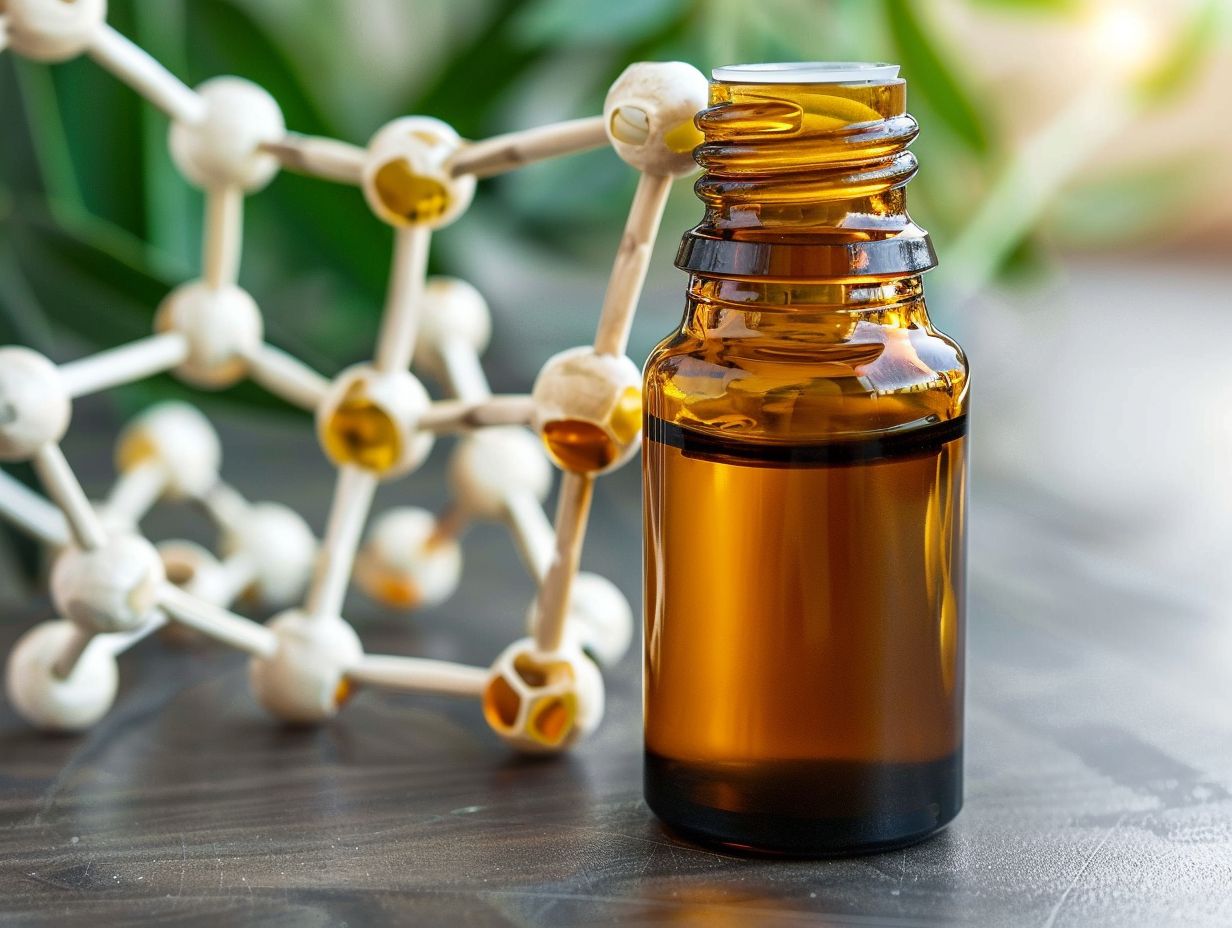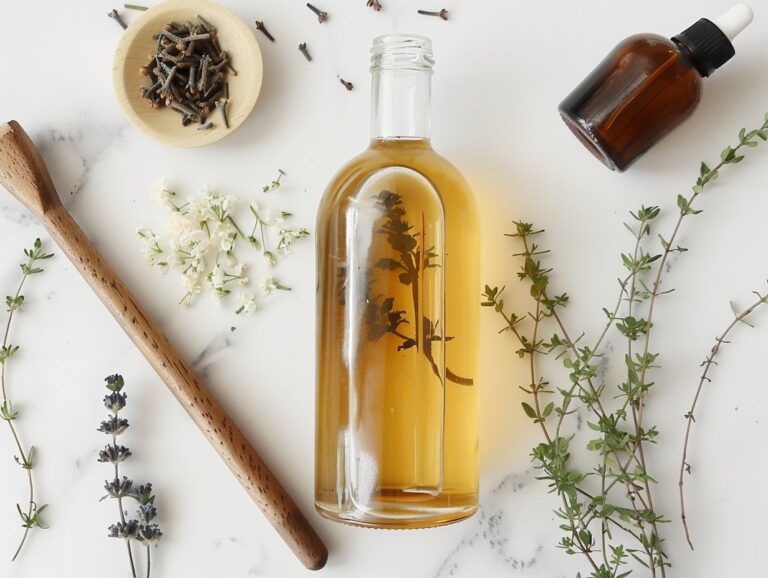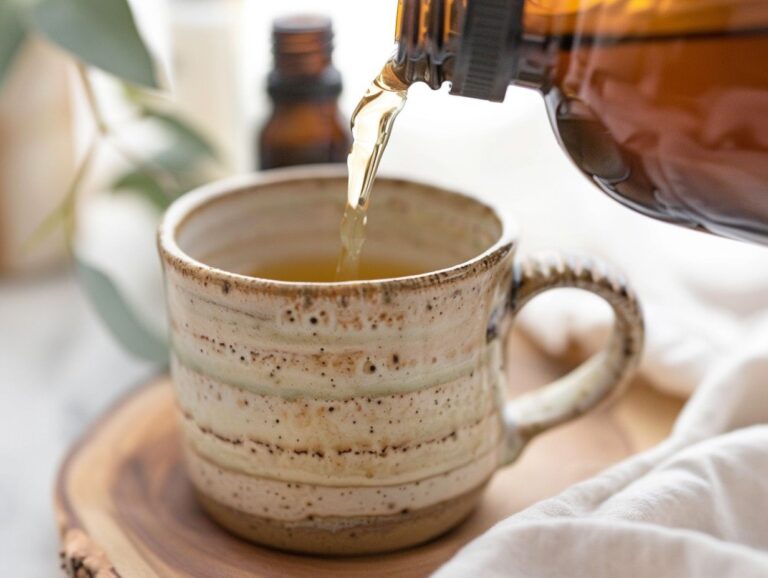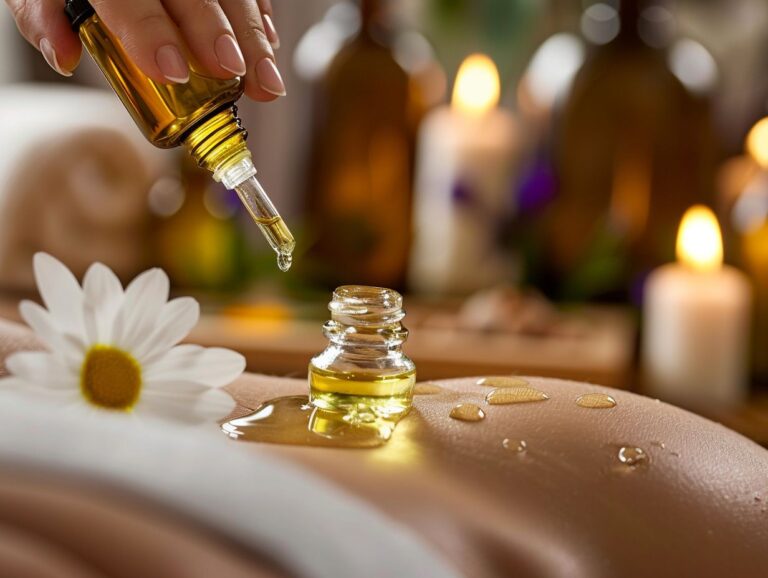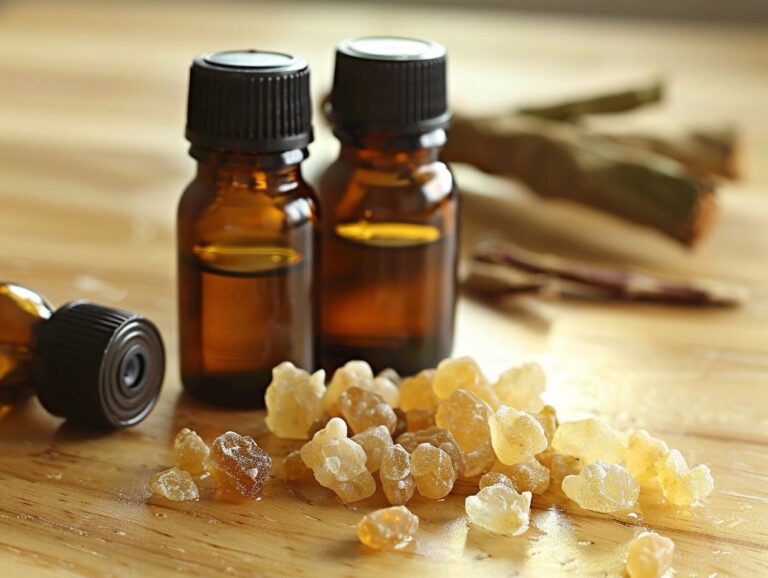Do Essential Oils Break Down Collagen
Collagen, an essential protein for skin health, is often the focus of many skincare enthusiasts. But what about essential oils? Do they help or harm collagen production?
This article will explore the relationship between essential oils and collagen breakdown. We will dive into studies on this topic, discuss factors that can affect collagen breakdown, and highlight the best essential oils for skin health.
We will provide tips on how to use essential oils safely and examine other factors that can impact collagen production. Let’s uncover the truth about essential oils and collagen!
Key Takeaways:
What Is Collagen?
Collagen is a structural protein found in the skin, bones, tendons, and connective tissues of the body. It provides strength and elasticity to the skin, contributing to a youthful appearance and overall health.
Collagen plays a crucial role in wound healing, as it helps in the formation of new tissue. Plus skin health, collagen also supports joint flexibility and bone density. Without adequate collagen levels, the skin may lose its firmness and elasticity, leading to sagging and wrinkles. The decline in collagen production with age is a major factor in the visible signs of aging, such as fine lines and reduced skin quality.
How Does Collagen Benefit The Skin?
Collagen benefits the skin by improving its firmness, reducing wrinkles, enhancing hydration, and promoting a glowing complexion. It plays a crucial role in maintaining skin elasticity and resilience.
Collagen aids in the repair and regeneration of skin tissue, accelerating wound healing and minimizing scars. By supporting the skin’s structure, collagen helps prevent sagging and maintain a youthful appearance. Regular collagen intake can also boost collagen production within the skin, leading to long-term benefits such as improved skin texture and reduced fine lines. Collagen supports overall skin health by increasing skin elasticity, reducing inflammation, and protecting against UV damage.
What Are Essential Oils?
Essential oils are concentrated plant extracts that capture the aromatic and beneficial properties of various plants. They are commonly used in aromatherapy, skincare, and holistic wellness practices.
These oils are extracted through processes like steam distillation, cold pressing, or solvent extraction, ensuring that their potent properties remain intact. Aromatherapy, which involves using these oils to enhance psychological and physical well-being, is a popular field where essential oils are extensively utilized.
- In skincare, essential oils are valued for their natural healing and rejuvenating capabilities. Common ones like lavender, rose, and bergamot are known for their soothing, anti-inflammatory, and anti-aging benefits, making them key ingredients in various skincare products.
Do Essential Oils Break Down Collagen?
There is ongoing debate about whether essential oils can break down collagen. Some studies suggest that certain essential oils may have collagen-boosting properties, while others caution about potential adverse effects.
One study published in the Journal of Investigative Dermatology demonstrated that lavender essential oil can enhance collagen synthesis, leading to improved skin elasticity and firmness. On the other hand, a separate research paper in the Journal of Cosmetic Dermatology highlighted concerns that prolonged use of undiluted essential oils, such as citrus oils, may trigger skin sensitivities and promote collagen degradation.
Studies on Essential Oils and Collagen Breakdown
Research on essential oils and collagen breakdown has yielded mixed results. While some studies indicate that certain essential oils like lavender and rosemary may promote collagen synthesis, others suggest potential collagen degradation effects.
For example, a study published in the Journal of Cosmetic Dermatology found that lavender oil displayed antioxidant properties that could help protect collagen from degradation caused by free radicals. On the other hand, research in the Journal of Investigative Dermatology demonstrated that bergamot oil could potentially inhibit collagen production, leading to concerns about its long-term effects on skin health. These varying outcomes emphasize the complexity of interactions between essential oils and collagen in skincare formulations.
Factors That Can Affect Collagen Breakdown
Several factors can influence collagen breakdown, including sun exposure, smoking, poor nutrition, and aging. These factors can accelerate the natural degradation of collagen in the skin and body.
UV radiation from the sun is a major contributor to collagen damage, leading to wrinkles, sagging skin, and loss of elasticity. Sun protection through the regular use of sunscreen and seeking shade can help mitigate this harmful impact. Smoking further exacerbates collagen breakdown by reducing blood flow and limiting oxygen and nutrients to the skin. A diet rich in antioxidants and essential nutrients plays a crucial role in supporting collagen production and maintaining skin health.
What Are The Best Essential Oils For Skin Health?
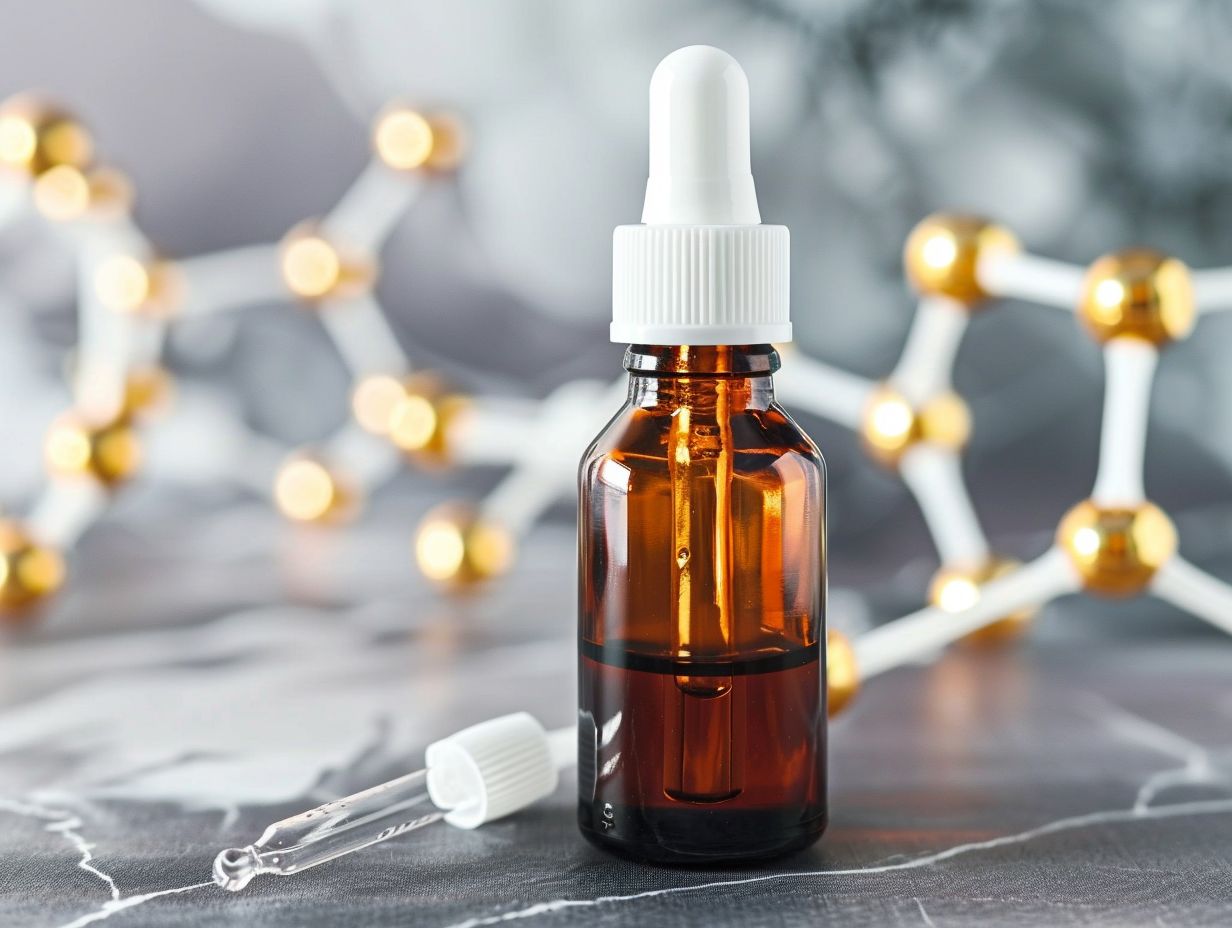
Lavender oil is known for its calming effect on the skin, reducing redness and irritation.
Frankincense oil promotes cell regeneration, aiding in skin rejuvenation.
Rosehip oil is rich in vitamins A and C, boosting collagen production and improving skin elasticity.
Carrot seed oil is packed with antioxidants, helping to protect the skin from environmental damage.
Lastly, geranium oil balances oil production, making it suitable for both dry and oily skin types.
Lavender Oil
Lavender oil is a versatile essential oil known for its calming aroma and skin-soothing properties. It is often used in skincare products and aromatherapy for its relaxation benefits.
Recent studies have highlighted lavender oil’s potential anti-inflammatory properties, making it a popular choice for alleviating skin irritations such as eczema and acne. Its antioxidant effects can help protect the skin from free radical damage and premature aging. To safely enjoy these benefits, it is recommended to dilute lavender oil with a carrier oil before applying it topically. A few drops in a diffuser can also help create a calming atmosphere for relaxation and improved sleep quality.
Frankincense Oil
Frankincense oil is prized for its skin-rejuvenating properties and its ability to promote cellular regeneration. It is commonly used in anti-aging skincare routines for its wrinkle-smoothing effects.
Regarding skin regeneration, frankincense oil works wonders by encouraging the growth of new skin cells and aiding in the repair of damaged tissue. This natural oil also stimulates collagen production, a vital protein responsible for maintaining skin elasticity and firmness. Its astringent properties help to tighten and tone the skin, leading to an overall improvement in skin texture and tone.
Rosehip Oil
Rosehip oil is rich in vitamins and antioxidants, making it an excellent choice for skin rejuvenation and hydration. It can help improve skin texture and reduce the appearance of scars and fine lines.
Plus its rich nutrient content, rosehip oil has powerful anti-inflammatory properties, making it beneficial for soothing irritated or sensitive skin. Its ability to promote collagen production aids in skin elasticity and firmness, leading to a more youthful complexion.
Regular application of rosehip oil can also help in protecting the skin from environmental stressors and UV damage, acting as a natural barrier against free radicals. Whether used as a standalone moisturizer, mixed into serums, or as a part of a night skincare routine, this versatile oil is suitable for all skin types.
Carrot Seed Oil
Carrot seed oil, derived from wild carrot seeds, is known for its skin-rejuvenating and anti-aging benefits. It can help improve skin elasticity, tone, and overall complexion.
Rich in antioxidants, carrot seed oil protects the skin from free radical damage, promoting a youthful appearance. Its high beta-carotene content stimulates cell renewal, aiding in reducing the appearance of wrinkles and fine lines.
Regular application of carrot seed oil can also help in brightening the skin tone, giving it a radiant glow. To maximize its benefits, it is recommended to mix a few drops with a carrier oil, such as jojoba or almond oil, before applying it to the skin.
Geranium Oil
Geranium oil is valued for its balancing properties that can help regulate sebum production, making it beneficial for both oily and dry skin types. It also has a floral scent that promotes relaxation.
Geranium oil is rich in antioxidants, which can assist in improving skin texture and tone by fighting against free radicals that contribute to premature aging. Its astringent properties help to tighten skin and reduce the appearance of pores.
To incorporate geranium oil into your skincare routine, consider adding a few drops to your moisturizer or diluting it with a carrier oil for a DIY facial serum. You can also enjoy its benefits by adding a few drops to your bathwater for a rejuvenating experience.
How To Use Essential Oils Safely?
To use essential oils safely, it is essential to dilute them properly with carrier oils, perform a patch test before widespread application, and avoid sun exposure after using photosensitive oils.
When diluting essential oils, a common ratio is 1-2%, which equates to 1-2 drops of essential oil per teaspoon of carrier oil for adults. For children, the ratio should be even lower at 0.25-0.5%. It is crucial to always follow this guideline to prevent skin irritation.
Before applying any essential oil on a larger area, conduct a patch test by applying a small amount diluted in carrier oil on a small patch of skin, like the inner forearm. Wait for 24 hours to check for any adverse reactions.
Some essential oils, such as bergamot and lemon, are photosensitive and can cause skin irritation or discoloration when exposed to sunlight. To avoid this, refrain from sun exposure for at least 12 hours after using these oils topically.
Dilute Essential Oils Properly
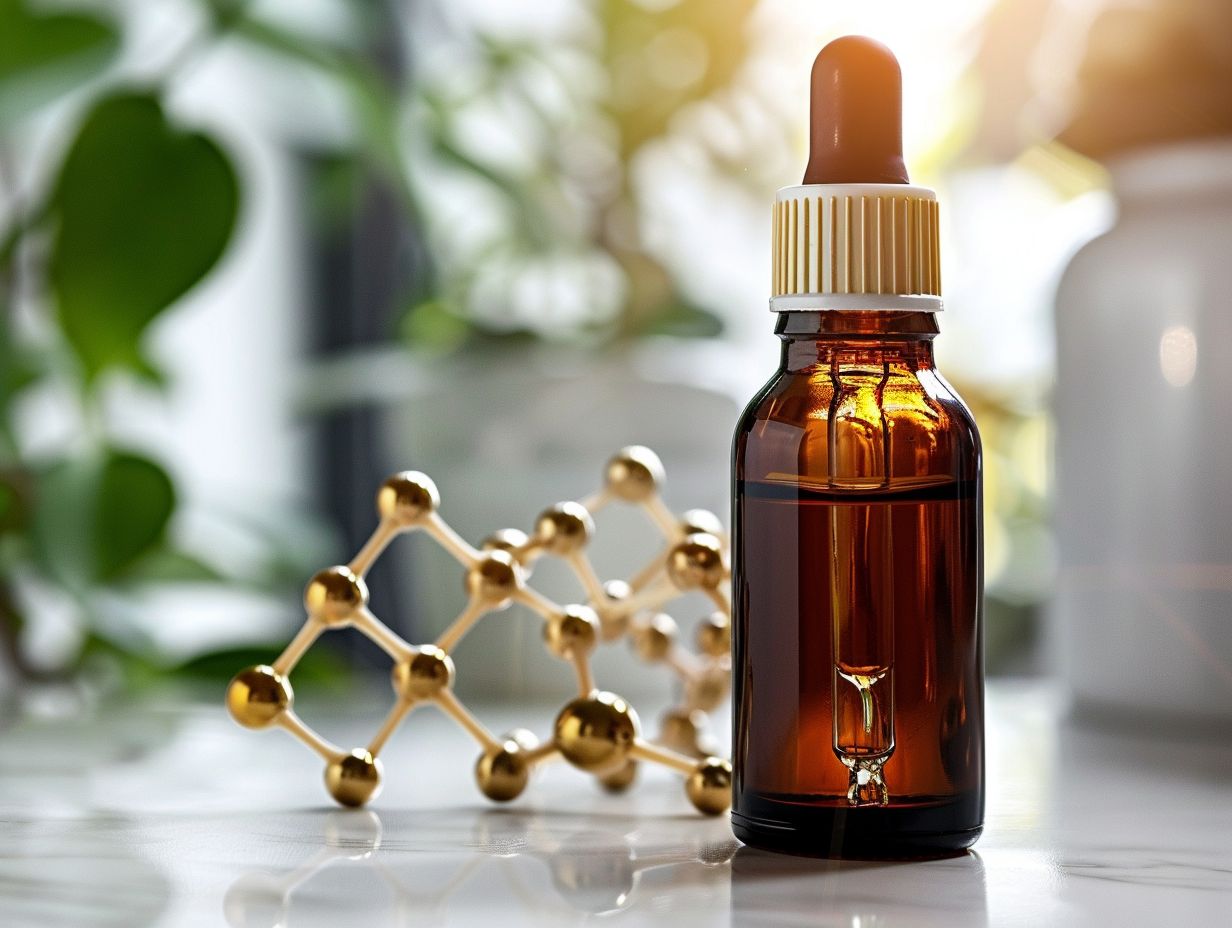
For most essential oils, a safe dilution ratio for topical application is typically between 2-3% for adults. This means adding about 12-18 drops of essential oil per ounce of carrier oil. When using oils on children or individuals with sensitive skin, it’s best to lower the ratio to 1% or even less to avoid adverse reactions.
When choosing a carrier oil, consider ones like sweet almond, grapeseed, or argan oil, as they are well-tolerated and have their own skincare benefits. Each carrier oil also has its own absorption rate and viscosity, affecting how quickly it penetrates the skin and how well it spreads the essential oil fragrance.
Patch Test Before Use
Before using an essential oil on a larger skin area, it is advisable to conduct a patch test on a small area to check for any adverse reactions or allergies. This helps minimize the risk of skin irritation.
When conducting a patch test, ensure the inner wrist or elbow is clean and dry before applying a small amount of diluted essential oil. Cover the area with a bandage or gauze to prevent the oil from being wiped off. Leave it on for 24 hours without getting it wet. After the allotted time, observe the skin for any signs of redness, itching, swelling, or irritation.
If there are no adverse reactions, the essential oil is likely safe for further use. If any discomfort occurs, it is best to refrain from using that particular oil on a larger area of the skin. Always seek advice from a healthcare professional if in doubt about the patch test results to ensure skin compatibility.
Avoid Sun Exposure After Use
Certain essential oils, such as citrus oils like lemon and bergamot, can increase skin photosensitivity and risk of sunburn. It is crucial to avoid direct sun exposure after applying these oils to the skin.
Other oils that can cause photosensitivity include
- lime oil
- grapefruit oil
- orange oil
- cumin oil
These oils contain compounds that make the skin more sensitive to UV rays, potentially leading to sun damage and burns. Therefore, it’s important to be mindful of the ingredients in your skincare products.
When using photosensitive oils, it is recommended to apply them in the evenings to minimize sun exposure risks. Always make sure to use sunscreen with high SPF levels when going out in the sun, even on cloudy days, to protect your skin from harmful UV radiation.
What Are The Other Factors That Can Affect Collagen Breakdown?
Plus essential oils, several external factors can contribute to collagen breakdown, including sun exposure, smoking, poor nutrition, and the natural aging process.
Environmental exposures, such as pollution and harsh weather conditions, can also accelerate collagen degradation, leading to premature aging of the skin.
Moreover, lifestyle habits like excessive alcohol consumption, lack of sleep, and high stress levels can further impact collagen production and quality.
Biological aging, characterized by a decrease in collagen synthesis and an increase in enzymes that break down collagen, is a natural process that cannot be avoided but can be managed through proper skincare and lifestyle modifications.
Sun Exposure
Excessive sun exposure can accelerate collagen breakdown in the skin due to UV radiation, leading to premature aging, wrinkles, and reduced skin elasticity. Sun protection is crucial to maintain collagen integrity.
Collagen, a key structural protein in the skin, provides firmness and elasticity. When exposed to UV radiation from the sun, collagen fibers can become weakened and damaged over time. This damage disrupts the skin’s natural support system, resulting in sagging skin and the formation of fine lines and wrinkles.
Protecting your skin from harmful UV rays is essential to minimize collagen breakdown. Sunscreen with broad-spectrum SPF, protective clothing, hats, and seeking shade during peak sun hours are effective measures to shield your skin from UV-induced damage and support collagen health.
Smoking
Smoking is a significant factor that accelerates collagen breakdown in the skin. The harmful chemicals in tobacco smoke can impair collagen production, leading to premature aging signs like wrinkles and sagging skin.
Collagen, a protein crucial for maintaining skin strength and elasticity, acts as a scaffolding that supports the skin’s structure. When exposed to the toxins in cigarette smoke, collagen fibers are damaged, causing skin to lose its firmness and resilience. This accelerated breakdown also inhibits the body’s ability to repair and regenerate collagen, further exacerbating the aging process. Quitting smoking is essential for halting this detrimental impact on collagen synthesis and promoting skin rejuvenation. By making this positive change, individuals can not only enhance their skin health but also slow down the aging process, reducing the appearance of fine lines and wrinkles.
Poor Nutrition
A diet lacking essential nutrients like vitamin C, amino acids, and antioxidants can impede collagen synthesis and contribute to collagen breakdown. Nutrient-rich foods are vital for supporting collagen production and skin health.
Collagen, the most abundant protein in the body, plays a crucial role in maintaining skin elasticity and firmness. When the body lacks the necessary building blocks, such as vitamin C, proline, and antioxidants, collagen synthesis is disrupted, leading to weaker skin structure and premature aging.
Key nutrients like vitamin C are essential for collagen formation as they help in stabilizing collagen molecules and promoting their cross-linking. Amino acids, particularly proline and glycine, are the building blocks of collagen, supporting the skin’s structural integrity.
Antioxidants like vitamin E and selenium protect collagen from free radical damage, preventing accelerated collagen degradation and maintaining skin youthfulness. Including a variety of colorful fruits and vegetables, lean proteins, and healthy fats in the diet can provide the necessary nutrients to promote collagen synthesis and enhance skin rejuvenation.
Aging
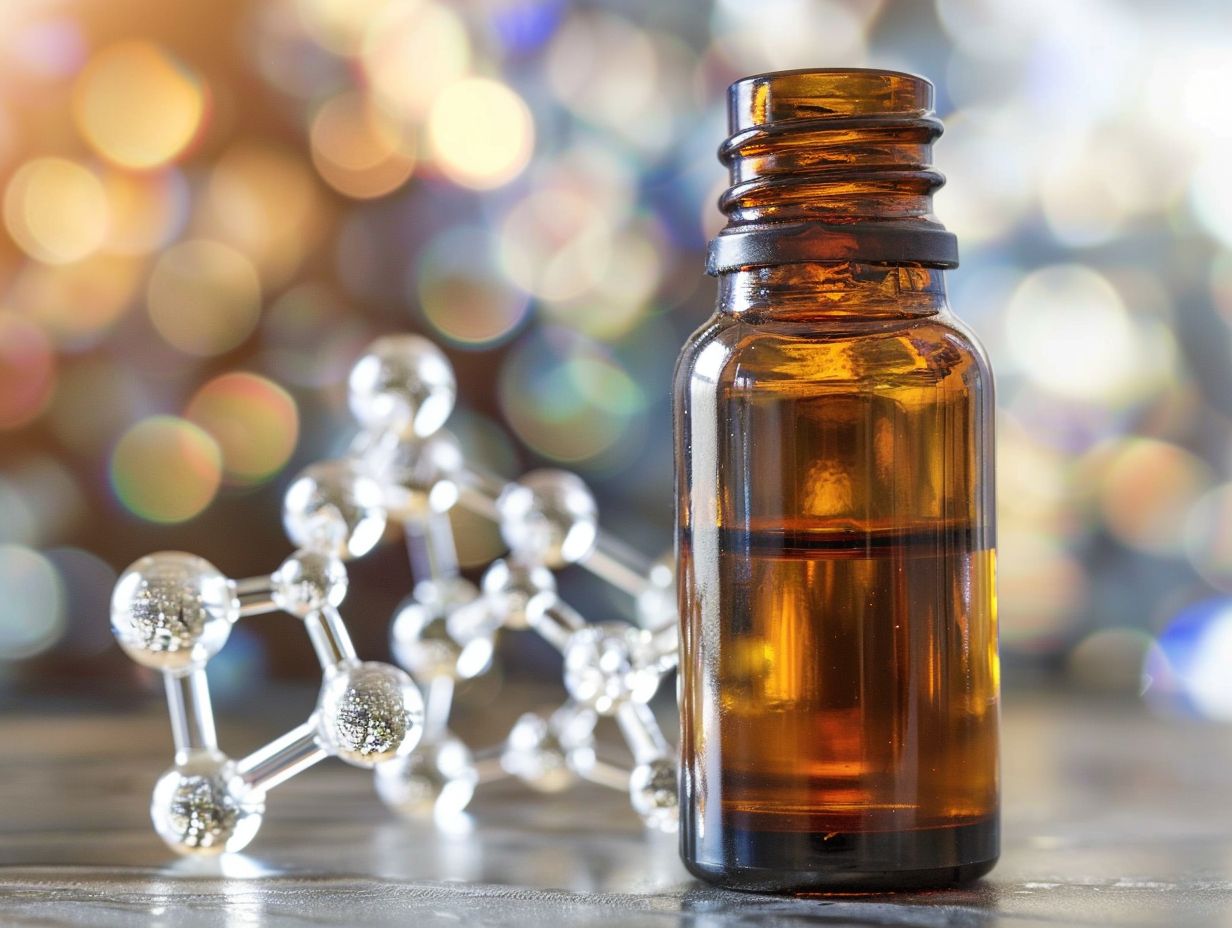
As collagen levels decrease, skin starts to show signs of aging, such as fine lines, wrinkles, and sagging. Reduced collagen leads to a slower skin cell turnover rate, resulting in a dull complexion.
- To counteract these effects, skincare strategies like using collagen-boosting products containing ingredients like peptides, vitamin C, and retinoids can help stimulate collagen synthesis.
Other treatments, including laser therapies, microneedling, and dermal fillers, can also be effective in promoting collagen production and rejuvenating the skin.
Frequently Asked Questions
1. Do essential oils actually break down collagen in the skin?
No, essential oils do not break down collagen in the skin. In fact, some essential oils have been found to promote collagen production and help maintain skin elasticity.
2. Is it safe to use essential oils on my skin if I have collagen-related concerns?
Yes, it is generally safe to use essential oils on the skin even if you have concerns about collagen breakdown. However, it is always recommended to dilute essential oils and do a patch test before using them on your skin.
3. Can essential oils reverse the effects of collagen loss in the skin?
While essential oils cannot reverse the effects of collagen loss, they can help improve the overall appearance of the skin by promoting elasticity and hydration. They can also help prevent further collagen breakdown.
4. Are there any essential oils that specifically target collagen production?
Yes, some essential oils such as frankincense, lavender, and rosemary have been found to stimulate collagen production in the skin. These oils can be added to your skincare routine to help maintain healthy levels of collagen.
5. What are some other benefits of using essential oils for collagen-related concerns?
Apart from promoting collagen production and preventing its breakdown, essential oils can also help improve the texture and tone of the skin, reduce the appearance of fine lines and wrinkles, and provide nourishment and hydration.
6. Can essential oils be used as a replacement for collagen in skincare?
No, essential oils cannot replace collagen in skincare as they do not have the same structural properties as collagen. However, they can be used in conjunction with other collagen-boosting ingredients to improve the overall health and appearance of the skin.

